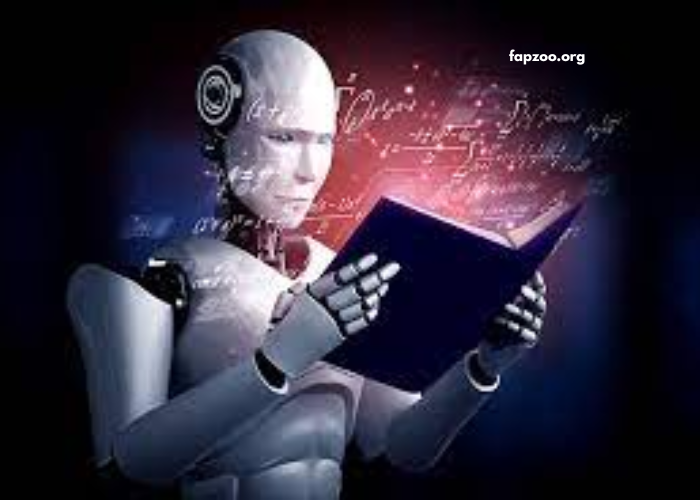Artificial Intelligence (AI) has been a major force driving innovation and transforming industries across the globe. From enhancing business operations to revolutionizing everyday experiences, AI’s influence on modern technology is undeniable. In this article, we will explore how AI is shaping the future of technology, the key areas where it is making a difference, and the potential challenges and opportunities that lie ahead.
What is Artificial Intelligence?
Before diving into the impact AI is having on modern technology, it’s important to define what artificial intelligence actually is. AI refers to the simulation of human intelligence processes by machines, particularly computers. These processes include learning (the ability to improve performance over time), reasoning (making decisions based on data), and self-correction (the ability to adjust based on new information).
AI can be categorized into different types, including narrow AI (which is designed to perform a specific task, such as a chatbot or recommendation system) and general AI (which has the potential to perform any intellectual task that a human can do). The evolution of AI technologies has paved the way for rapid advancements across various sectors.
AI and Automation: Transforming Industries
Revolutionizing Manufacturing
One of the most significant ways AI is impacting modern technology is through automation, particularly in the manufacturing industry. Automation powered by AI is helping businesses improve efficiency, reduce costs, and enhance product quality. In smart factories, AI systems can monitor machinery, predict maintenance needs, and optimize production schedules. This leads to fewer downtimes, increased productivity, and more consistent product output.
AI-powered robots, often equipped with machine learning algorithms, are also being used to perform repetitive tasks, freeing up human workers for more complex and creative work. Furthermore, AI in manufacturing helps with quality control by detecting defects and anomalies faster than human inspectors could.
AI in Healthcare: Revolutionizing Diagnostics and Treatment
The healthcare industry is another sector that is experiencing a major transformation thanks to AI. Machine learning and AI algorithms are enabling faster and more accurate diagnoses by analyzing vast amounts of medical data, such as imaging scans and patient records.
AI-powered diagnostic tools can help doctors identify conditions such as cancer, heart disease, and neurological disorders at earlier stages, improving treatment outcomes. In addition, AI is also being used to develop personalized treatment plans based on a patient’s unique medical history and genetic profile, resulting in more effective and tailored therapies.
Furthermore, AI is supporting drug discovery by analyzing molecular structures and predicting how different compounds might affect the human body. This speeds up the process of finding new treatments and medications, ultimately saving lives and reducing costs.
AI and Consumer Technology: Shaping Everyday Experiences
Virtual Assistants and Smart Devices
AI-powered virtual assistants, such as Amazon’s Alexa, Apple’s Siri, and Google Assistant, have become integral parts of modern life. These intelligent systems use natural language processing (NLP) to understand and respond to user queries, making everyday tasks like setting reminders, controlling smart home devices, and searching for information more convenient.
AI is also behind the rapid growth of the Internet of Things (IoT), where everyday objects—ranging from refrigerators to thermostats—are connected and capable of collecting and analyzing data. These smart devices can adapt to user behavior, improving the overall user experience and making homes and offices more efficient and comfortable.
AI in Entertainment: Personalized Content
Another area where AI has made a profound impact is in entertainment. Streaming services like Netflix and Spotify use AI algorithms to recommend movies, shows, and music based on users’ preferences and viewing/listening history. These personalized recommendations enhance the user experience by helping people discover content they are most likely to enjoy.
AI is also being used in the creation of content itself. For example, AI is helping filmmakers and game developers create more realistic graphics, animations, and even dialogue. In the gaming industry, AI is used to develop non-playable characters (NPCs) that react intelligently to players’ actions, creating more immersive and dynamic gaming experiences.
AI in Business and Finance: Enhancing Decision-Making
Data Analysis and Business Intelligence
One of the most significant impacts of AI on modern technology is its ability to process and analyze vast amounts of data. In business, AI-powered data analytics tools are helping companies make better decisions by providing insights into customer behavior, market trends, and operational efficiencies.
Machine learning algorithms can identify patterns and correlations within large datasets that would be impossible for humans to spot. These insights can help businesses optimize their marketing strategies, improve customer experiences, and identify new opportunities for growth.
For example, AI is increasingly being used in customer relationship management (CRM) systems to personalize interactions with clients, predict customer needs, and automate follow-up communications. This results in stronger customer relationships and increased sales.
AI in Financial Services: Risk Management and Fraud Detection
AI is also making waves in the finance industry, where it is being used to improve risk management, detect fraudulent activities, and optimize investment strategies. Financial institutions are using AI to analyze financial markets, assess creditworthiness, and predict stock market trends.
AI algorithms are particularly effective at identifying unusual patterns of behavior that may indicate fraudulent transactions. Machine learning models can flag suspicious activities in real time, preventing potential financial losses. Additionally, AI is being used to assess and mitigate risks by analyzing historical data and predicting potential market shifts.
Ethical and Societal Implications of AI
As AI continues to evolve and integrate into various aspects of society, it is essential to address the ethical and societal challenges it presents. Some of the primary concerns related to AI include:
Privacy Concerns
AI relies heavily on data, and much of the data it processes is personal in nature. This raises concerns about privacy and the potential misuse of sensitive information. With AI-powered surveillance systems becoming more widespread, there is a growing need for regulations that ensure individuals’ privacy rights are protected.
Job Displacement
The rise of automation and AI-powered systems has raised concerns about job displacement. As machines take over repetitive and manual tasks, many fear that workers in industries such as manufacturing, retail, and customer service will lose their jobs. While AI may create new opportunities in fields such as data science and machine learning, there is a pressing need for upskilling and reskilling programs to help workers transition to new roles.
Bias and Discrimination
AI systems can inherit biases from the data they are trained on. If the data reflects historical inequalities or biases, the AI model may perpetuate those biases in its decision-making processes. For example, facial recognition technology has been shown to have higher error rates for people with darker skin tones, leading to concerns about fairness and discrimination.
To address these issues, it is crucial to develop transparent and ethical AI systems that are trained on diverse and representative datasets.
The Future of AI: Opportunities and Challenges
The future of AI holds exciting possibilities for further transforming industries and improving the quality of life for people around the world. As AI continues to advance, we can expect to see innovations in fields such as autonomous vehicles, AI-driven healthcare solutions, and advanced robotics.
AI in Autonomous Vehicles
Self-driving cars are perhaps one of the most highly anticipated applications of AI. With the ability to process real-time data from sensors, cameras, and GPS systems, AI can navigate roads, avoid obstacles, and make driving decisions more safely and efficiently than human drivers.
Autonomous vehicles have the potential to reduce traffic accidents, improve fuel efficiency, and increase mobility for individuals with disabilities or limited access to transportation.
AI in Climate Change and Sustainability
AI is also playing a key role in addressing global challenges such as climate change. Machine learning algorithms are being used to model climate patterns, predict environmental changes, and optimize energy consumption. AI can also help design more efficient renewable energy systems, such as wind and solar farms, by predicting weather patterns and optimizing energy output.
The Rise of Artificial General Intelligence (AGI)
While current AI systems are designed to perform specific tasks, there is ongoing research into artificial general intelligence (AGI), which aims to create machines that can perform any intellectual task that a human being can do. The development of AGI would be a monumental leap forward in AI research, with the potential to revolutionize every aspect of society.
However, AGI also raises significant ethical and safety concerns. If AGI systems were to surpass human intelligence, they could potentially outsmart us, leading to unforeseen consequences. As a result, researchers and policymakers are working to ensure that AGI development is done safely and responsibly.
Conclusion
AI is undoubtedly one of the most transformative technologies of our time, with the potential to revolutionize industries, improve lives, and solve some of the world’s most pressing challenges. From healthcare and finance to entertainment and manufacturing, AI is already reshaping the way we live and work.
However, the rapid advancement of AI also brings with it a range of ethical, societal, and economic challenges that must be carefully addressed. By promoting transparency, fairness, and collaboration, we can harness the full potential of AI while minimizing its risks and ensuring that its benefits are accessible to all.
As we look to the future, it is clear that AI will continue to be a driving force in the evolution of modern technology, opening up new possibilities and creating opportunities for innovation, growth, and progress.



